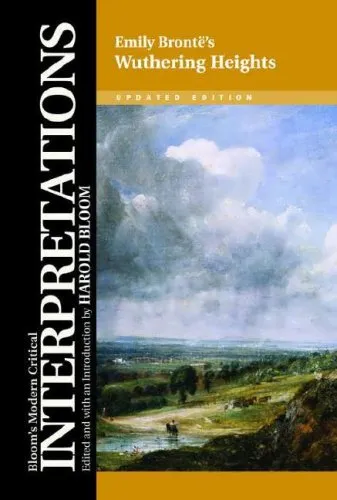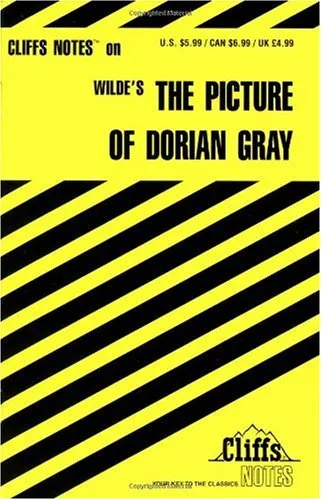Moby-Dick (Cliffs Notes)
3.7
Reviews from our users

You Can Ask your questions from this book's AI after Login
Each download or ask from book AI costs 2 points. To earn more free points, please visit the Points Guide Page and complete some valuable actions.Related Refrences:
Introduction to Moby-Dick (Cliffs Notes)
Welcome to the world of Herman Melville’s masterpiece, "Moby-Dick," an epic story that delves into the human spirit, ambition, and obsession. This companion guide provides a comprehensive understanding of the novel, designed to enhance the reader's comprehension and appreciation of Melville's complex work. As you embark on this literary voyage, you will unravel the layers of this classic through our detailed summary, key takeaways, famous quotes, and exploration of its enduring significance.
Detailed Summary of the Book
Moby-Dick, published in 1851, is a narrative that follows the journey of the Pequod, a whaling ship led by the enigmatic Captain Ahab. The story is narrated by Ishmael, a sailor who joins the crew of the Pequod and becomes embroiled in Ahab's monomaniacal pursuit of the white whale, Moby Dick. This giant sperm whale inflicted grievous harm upon Ahab in a previous encounter, fueling his obsession for revenge.
Throughout the voyage, Melville weaves a rich tapestry of thematic explorations, including the concept of fate versus free will, the limits of human knowledge, and the struggle against the natural world. The crew of the Pequod is composed of a diverse set of characters, each contributing to the narrative with their distinct voices and perspectives.
As the journey progresses, the novel delves into philosophical and existential questions, all while depicting the perilous nature of whaling. Melville's use of symbolism and allegory transforms the voyage into a profound commentary on the human condition. The climax of the novel sees Ahab confronting Moby Dick, leading to a dramatic and tragic conclusion that underscores the futility of Ahab's vendetta and the relentless power of nature.
Key Takeaways
"Moby-Dick" is a multilayered work with numerous themes and insights. Some key takeaways include:
- The Nature of Obsession: Captain Ahab's unwavering pursuit of the white whale showcases how obsession can lead to destruction. His singular focus ultimately brings about his downfall and the demise of his crew.
- Complexity of Human Experience: The diverse characters aboard the Pequod depict the breadth of human experience and show how individuals from varied backgrounds can come together toward a common goal—though not always harmoniously.
- Man vs. Nature: The relentless and indifferent forces of the natural world confront the crew at every turn, illustrating the limits of human power and the inherent unpredictability of life.
- Questioning Fate: Throughout the narrative, characters grapple with the extent to which their destinies are preordained versus shaped by their choices and actions.
Famous Quotes from the Book
Melville's "Moby-Dick" is renowned for its eloquent prose and memorable lines. Some significant quotes include:
"Call me Ishmael."
This opening sentence sets the tone for the epic tale that follows, introducing the narrator's perspective.
"From hell's heart I stab at thee; for hate's sake I spit my last breath at thee."
In his final confrontation with Moby Dick, Ahab's words reflect his deep-seated vendetta and the lengths to which his obsession has driven him.
"It is not down on any map; true places never are."
This line highlights the novel's exploration of uncharted territory, both literal and metaphorical.
Why This Book Matters
"Moby-Dick" remains a seminal work in American literature for its ambitious scope and profound thematic depth. Melville's novel challenges readers to contemplate existential and philosophical questions through its blend of adventure, symbolism, and character study. The intricate narrative structure and complex characterizations provide scholars and literary enthusiasts endless avenues for analysis and interpretation.
The novel's exploration of man's relationship with nature, the power of obsession, and the inevitable confrontation with existential truths resonates with audiences even today. Its impact extends beyond literature, influencing art, culture, and philosophy.
Free Direct Download
You Can Download this book after Login
Accessing books through legal platforms and public libraries not only supports the rights of authors and publishers but also contributes to the sustainability of reading culture. Before downloading, please take a moment to consider these options.
Find this book on other platforms:
WorldCat helps you find books in libraries worldwide.
See ratings, reviews, and discussions on Goodreads.
Find and buy rare or used books on AbeBooks.
1495
بازدید3.7
امتیاز0
نظر98%
رضایتReviews:
3.7
Based on 0 users review
Questions & Answers
Ask questions about this book or help others by answering
No questions yet. Be the first to ask!















